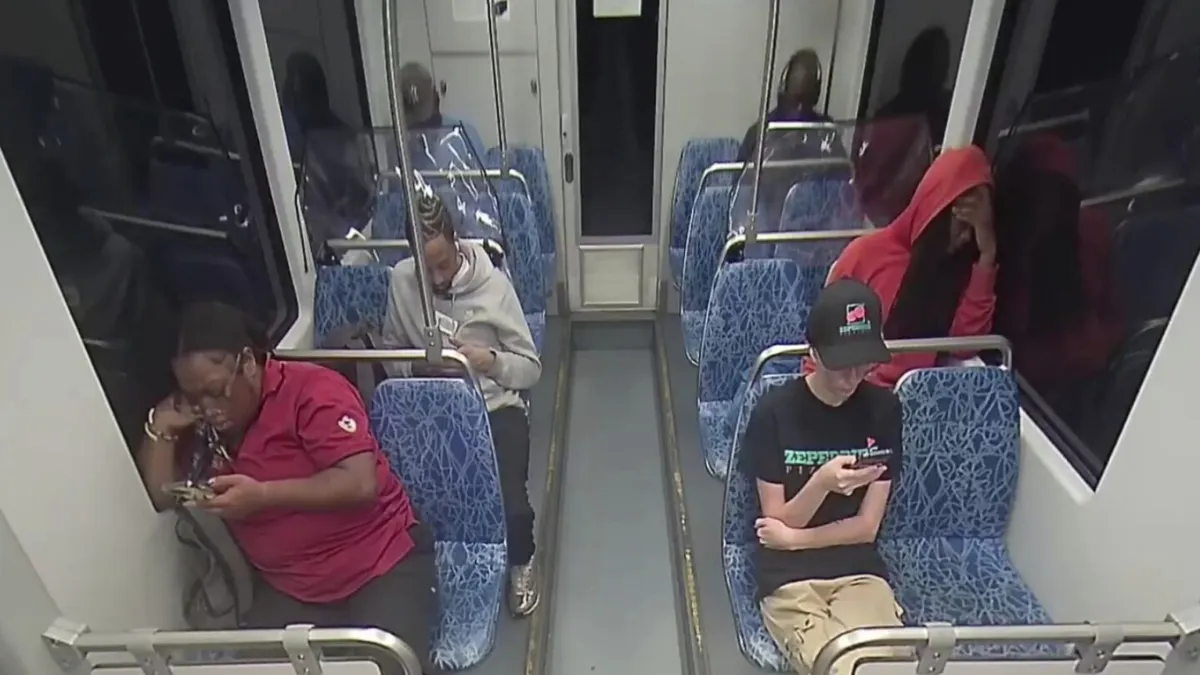
The Justice Department has charged a man in connection with the fatal stabbing of a Ukrainian refugee, highlighting serious concerns about public safety on public transportation. The incident occurred last month on a North Carolina commuter train, where 23-year-old Iryna Zarutska was allegedly attacked by Decarlos Brown Jr., a man with a lengthy criminal history comprising 14 prior arrests.
In a shocking act captured on video, Brown reportedly pulled out a knife and fatally stabbed Zarutska in a seemingly random attack. The incident has raised urgent questions regarding the effectiveness of crime prevention measures in cities like Charlotte, North Carolina. Critics argue that local leaders and judicial policies, particularly in Democratic-led areas, are failing to protect residents from violent crime.
Attorney General Pam Bondi expressed outrage over the incident, stating, “Iryna Zarutska was a young woman living the American dream — her horrific murder is a direct result of failed soft-on-crime policies that put criminals before innocent people.” She emphasized that the federal government would pursue the maximum penalty for Brown, who faces a charge of causing death on a mass transportation system. This charge could lead to a life sentence or even the death penalty.
Zarutska's family revealed that she had fled Ukraine, where she had been living in a bomb shelter due to the ongoing war. Described as determined and hopeful for a better life, Zarutska’s tragic death has become a focal point in the ongoing dialogue about public safety and the challenges faced by immigrants in the U.S.
Video footage from August 22 shows Zarutska boarding the light-rail train and taking a seat in front of Brown. Without any prior interaction, Brown stands and slashes her neck with a pocketknife, prompting fellow passengers to scream and flee. In addition to the federal charges, Brown is also facing a state charge of first-degree murder, which could also result in the death penalty in North Carolina, although executions have been on hold since 2006 due to ongoing legal challenges.
Brown's extensive criminal history includes a five-year sentence for robbery with a dangerous weapon in Mecklenburg County. Earlier this year, he was arrested after making repeated 911 calls from a hospital, claiming that people were trying to control him. A judge released him without bail, despite concerns raised by his mother about his violent behavior at home. She had sought an involuntary psychiatric commitment, and Brown was diagnosed with schizophrenia.
In July, a court ordered a psychological evaluation to determine Brown's competency to stand trial, but it remains unclear whether this evaluation occurred before the stabbing incident.
The Trump administration has capitalized on this incident to criticize Democratic leadership, suggesting that crime is rampant in cities governed by Democratic policies. Deputy Attorney General Todd Blanche stated, “Americans have to feel safe in the cities that they live in,” emphasizing the perceived failures of liberal policies to address public safety.
In response to the stabbing, Charlotte Mayor Vi Lyles announced increased security measures along transit lines. In her communication to residents, she labeled the incident as “a tragic failure by the courts and magistrates,” pointing out that individuals arrested are often released quickly, putting the community at risk.
Additionally, Republican State Auditor Dave Boliek has announced plans to audit Charlotte’s transit system, focusing on its safety and security budget as well as private security contracts.
This tragic event has reignited discussions surrounding violent crime, mental health issues, and the effectiveness of the justice system in protecting communities, especially in urban areas. As investigations continue, the case underscores the urgent need for comprehensive strategies to enhance public safety on mass transportation systems.